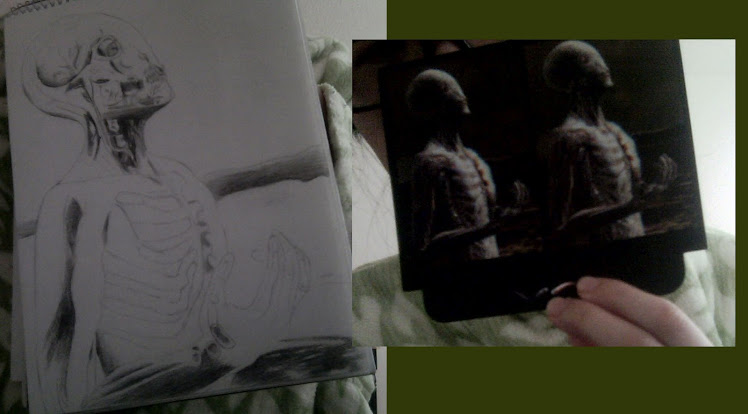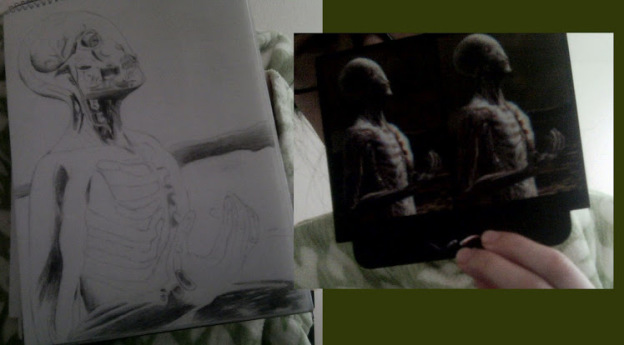Welcome to The Talon’s ‘Soundtrack to the Revolution.’
After I posted this lovely Iron & Wine album on my Facebook wall, describing it as “ritualistic posting of healing songs,” the brilliant Lucia Lorenzi responded by suggesting that The Talon editors write up a playlist for their “soundtrack to the revolution.” Lucia is a PhD candidate in the Department of English who writes about “the aesthetics and politics of silence in narratives of sexual violence but is more importantly someone for whom I have great respect and admiration. Thank you so much Lucia for keeping me writing!
It’s a stressful time of year for many of us. The weather is giving Eastside Flea an excuse to sell ugly Christmas sweaters (I don’t know about you, but I’m a fan) in the SUB. Many of us have important deadlines that may or may not determine how we’ll spend the next five years of our lives.
Thankfully, music is something that helps me stay grounded. Music imports artistic and technical work that others before us have done to transform emotional spaces for audiences across distance and time. Music can be political, meditative, and therapeutic. For those of us who can access music, its healing powers are magical.
What is self-care and why is it important? For those of us who believe systems of power that oppress us should be dismantled, self-care is not only a necessary tool to sustain our activism long-term; it is a form of resistance in itself against those systems of power.
Important critiques on the rhetoric of self-care have pointed out the ways in which capitalist notions of care have hijacked the term and used it to further its exploitative agendas. While I agree with this analysis, I don’t think we should ever overlook each person’s capacity to give themselves what they need in the moment, whether this is validation, comfort, or the permission to feel what we currently feel. Depending on who we are, we have different kinds of resources at our disposal to meet our needs, the needs that keep us (and not the capitalist machine) alive.
I do not want to take for granted the privilege I have in being able to access music. I can hear. I can regularly access a laptop that plays music. No one is telling me what I should or shouldn’t listen to. In this vein, it’s important to recognize that there is no such thing as a universal form of self-care. Music certainly isn’t, but what matters is that it does work and is incredibly important for some us, myself included.
With that, I’d like to share with you five albums that keep me going, picked from many, many others!
Note: These recommendations are not an endorsement of individual artists’ views or actions; I just like their music! Additionally, there is no wrong music to listen to while caring for ourselves in these stressful times. You do you!
- The Mountain Goats’ The Sunset Tree
Who doesn’t love The Mountain Goats?
Most of the album is about young people’s experiences with and memories of abuse. It seems counter-intuitive to listen to such content while trying to take care of ourselves, but for me, it’s important to build (while writing, reading, procrastinating) a sonic atmosphere of everyday struggle, against a sense that we are alone in our heads, alone in our resistance of violence.
The Sunset Tree along with other songs by The Mountain Goats is also featured as soundtrack for Moral Orel, a stop motion adult swim series interrogating dynamics of family life within the American protestant south. Together, the show and music make an apt pair for capturing tensions within patriarchal, alcoholic homes in often gritty, tragicomic ways. Not necessarily something everyone can get into for self-care purposes, but it’s wonderful for me.
I want to note that many of The Mountain Goats’ lyrics, including songs from The Sunset Tree, can be read as written from abusers’ perspectives. I’ve listened to “Going to Georgia” for hours without realizing how ostensibly murderous its lyrics are. Oops!
While I’m always disappointed when music or other media I love has objectionable content, I also do not ignore the fact that I play a role as a listener in shaping the meaning of a piece of work. Why did the energy in “Going to Georgia” help me? Do I necessarily increase the exploitation in the world by having it help me?
To me what’s central to self-care is to eradicate the shame so many people have about themselves, their bodies, their preferences. Analyzing lyrical content is what I do with my degree. Why would I do that when self-soothing?!
From the song “Up the Wolves”: “[T]here’s going to come a day when you feel better. / you’ll rise up free and easy on that day. / and float from branch to branch, / lighter than the air. / just when that day is coming, who can say? who can say?”
- Christina Aguilera’s Back to Basics
I love power-house singers.
In Back to Basics Christina simultaneously pays tributes to the “originators and innovators” like Billie Holiday, Etta James, Nat King Cole, and James Brown (among others) who foregrounded her musicianship and recommends these artists to her younger fans. The impulse to return to “those classic songs” isn’t nostalgia: it’s what musicians have always done to create their work. Indeed, the message that no artist creates their magic alone appears and reappears throughout the album in conjunction with a parallel exploration of Christina’s relationship to others.
Christina dedicates an entire song to thanking her fans; quite a few of her songs discuss relationships with the absent, violent father (“Oh Mother,” “Hurt,” “Right Man”); “F.U.S.S.” speaks directly to her ex-producer, Scott Scorch, about the end of their producer-musician relationship. These are Christina’s attempts to navigate the patriarchal world around her, and Back to Basic is the self-produced album to show for it.
No one can “tell [her] to behave” (“Still Dirrty”): I believe this message applies fully to me as well, especially when taking care of myself.
- Purity Ring’s Shrines
Purity Ring is a duo from Edmonton and their music, along with its accompanying art, is ethereal, sometimes exploding with sex-appeal (or romance-appeal, depending on your preferences). The lyrics in Shrines transport listeners into a sphere of dreams, where deadlines, tuitions, and grade point averages don’t exist. The last vestiges of capitalism have already been destroyed, explaining the album’s ecstatic, post-apocalyptic mood.
I swear I can hear the ghosts of William Blake and Emily Brontë speaking through here, in “Ungirthed”: “The air is familiar, the sound is not still / Dead voices cover their moats / They fill the cloth totes with / The rustles of earth / And the crying detritioning bones.”
- Tool’s 10,000 Days
I live in a world where who gets to listen to Tool is gate-kept and policed. I am not a white fellow with dreadlocks (yuck). I don’t particularly like smoking things. Bill Hicks, the ‘comedian’ that Tool has decided to honour in Ænima, is actually the worst (who jokes about suicide?!). We can also convincingly argue that the entire aesthetic of 10,000 Days is an appropriation of Hindu spirituality (though I can’t personally speak to that).
But damnit, I’m allowed to like Tool. While the cultural space that Tool sets up is indeed hostile to young disabled Asian women, my encounters with Tool as a soundtrack for struggle suggests that giving up Tool because of white supremacist cis-hetero-patriarchs dominate its fanbase would be giving up, and to let these assholes win.
Many Tool fans don’t seem to have as much praise for 10,000 Days as I do. But this album reminds me why my life matters; it meditates on (but does not indulge in) the subaltern’s daily agony. The album, or at least in my interpretation, theorizes subaltern perceptions of reality, especially when racial and gender violence are so invisibilized that the only way to make sense of oppression is through tracing its absolute evolutionary beginnings: “Give them thumbs, they forge a blade, / And where there’s one they’re bound to divide it right in two” (Right in Two).
As a further note, 10,000 Days is inspired by the Maynard James Keenan’s (the singer) mum being paralyzed for 10,000 days, a biographical detail that never fails to haunt me as I listen to the album.

I’m holding up a still from the DVD for “Vicarious,” the first single from 10,000 Days. The video is made entirely using CGI, and I was inspired to draw this particular image four years ago, when physics class got too boring. Drawing is also pretty important to my well-being! 🙂
- 5. Angel Haze… in general??
Angel Haze is an Indigenous and African American rapper who makes brilliant covers of otherwise crummy songs, such as Macklemore’s “Same Love”; she also re-interprets Drake and Lil Wayne to make them empowering for me to listen to (in a way that listening to these fellows themselves do not!).
I first discovered Angel Haze through a piece about her early experiences with sexual abuse (content note for sexual violence and ritual abuse!), “Cleaning Out My Closet,” and was hooked ever since.
Lyrics from “Battle Cry” ft. Sia (content note for self-harm), clearly an anthem for healing from and triumph against oppression: “You the only person alive who holds the key to your healin’ / So you take it and you run with it / And keep going even when your suns hidden / Because the time we spend in darkness when the rain comes / Is where we often find the light soon as the pain’s done.”
Self-care, to me, is never an opportunity to dismiss, minimize, or isolate anyone from the difficulties they face daily. The implicit goal of self-care is to build community, and create lasting change that builds a better world for everyone. We mustn’t ever forget that we are interdependent, that we must care for ourselves, each other, as well as the earth, in tandem. In the struggle, with self-care!




